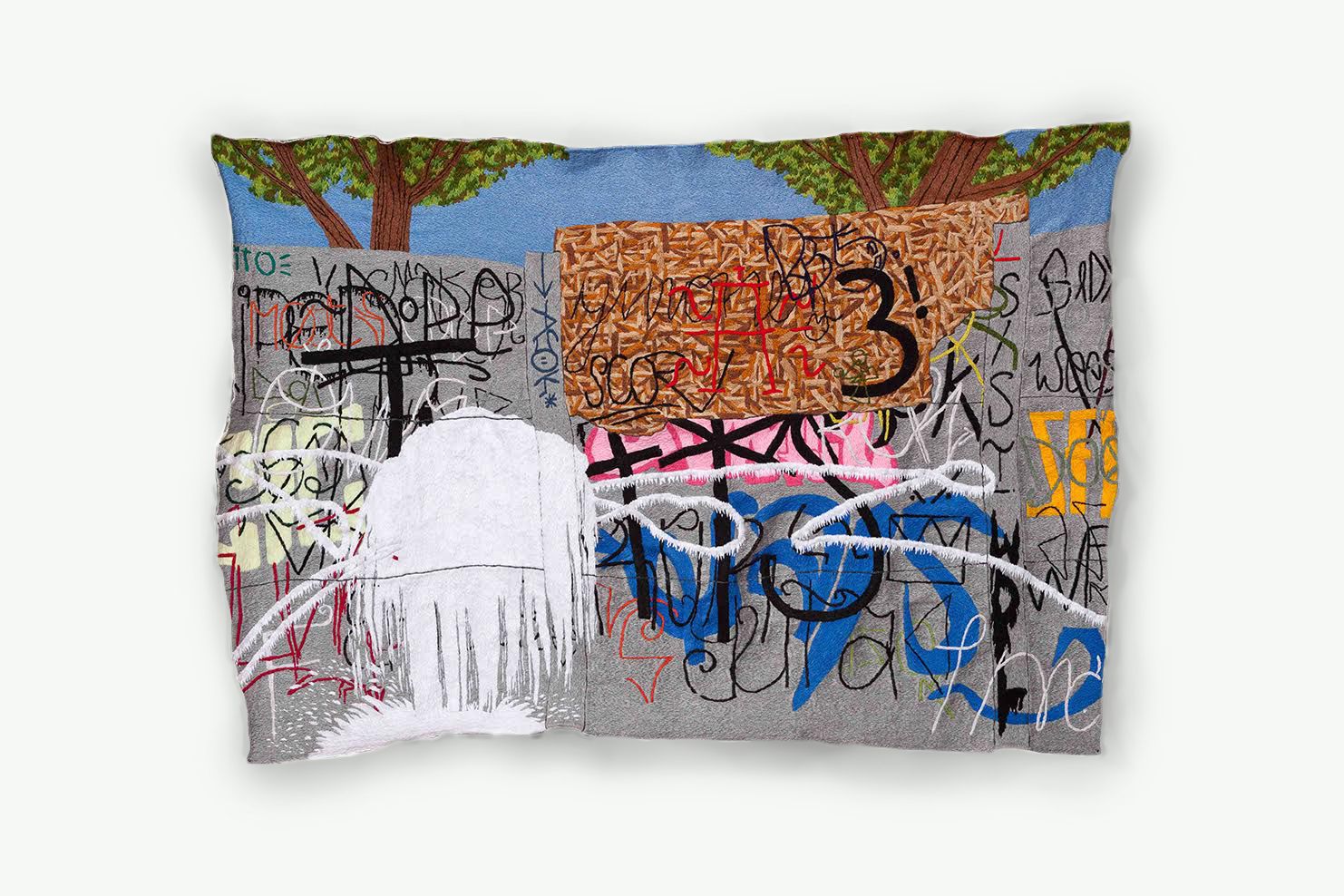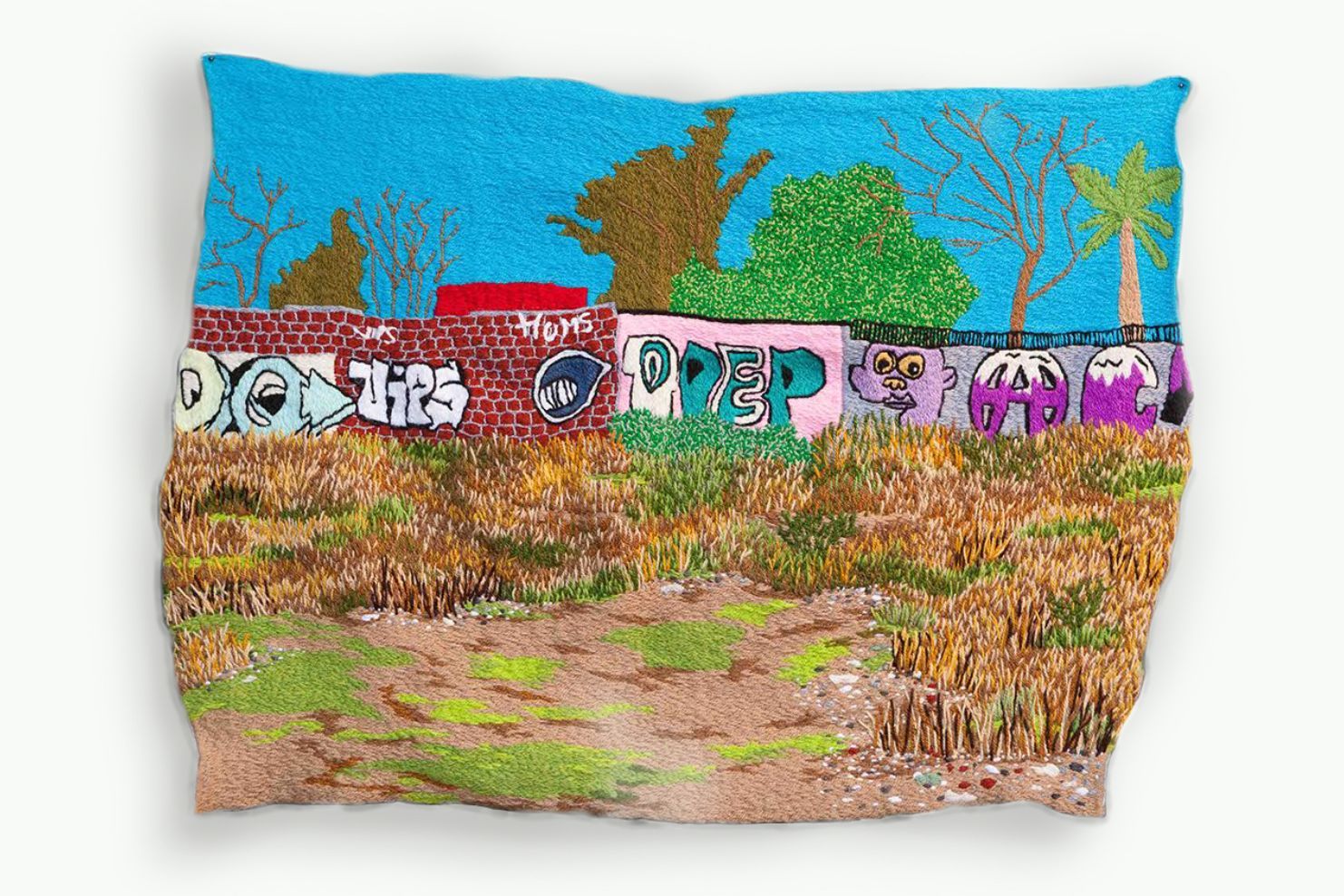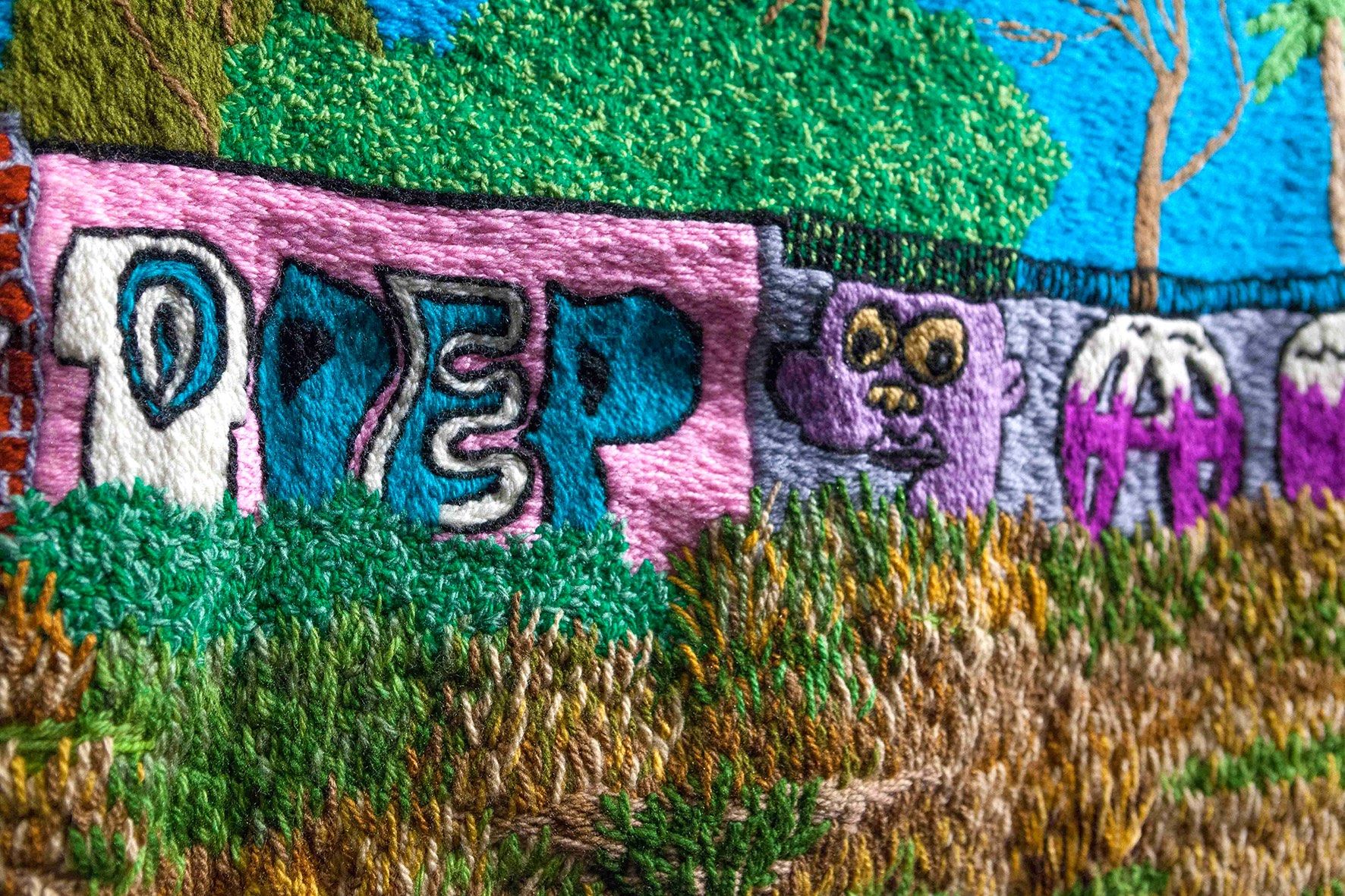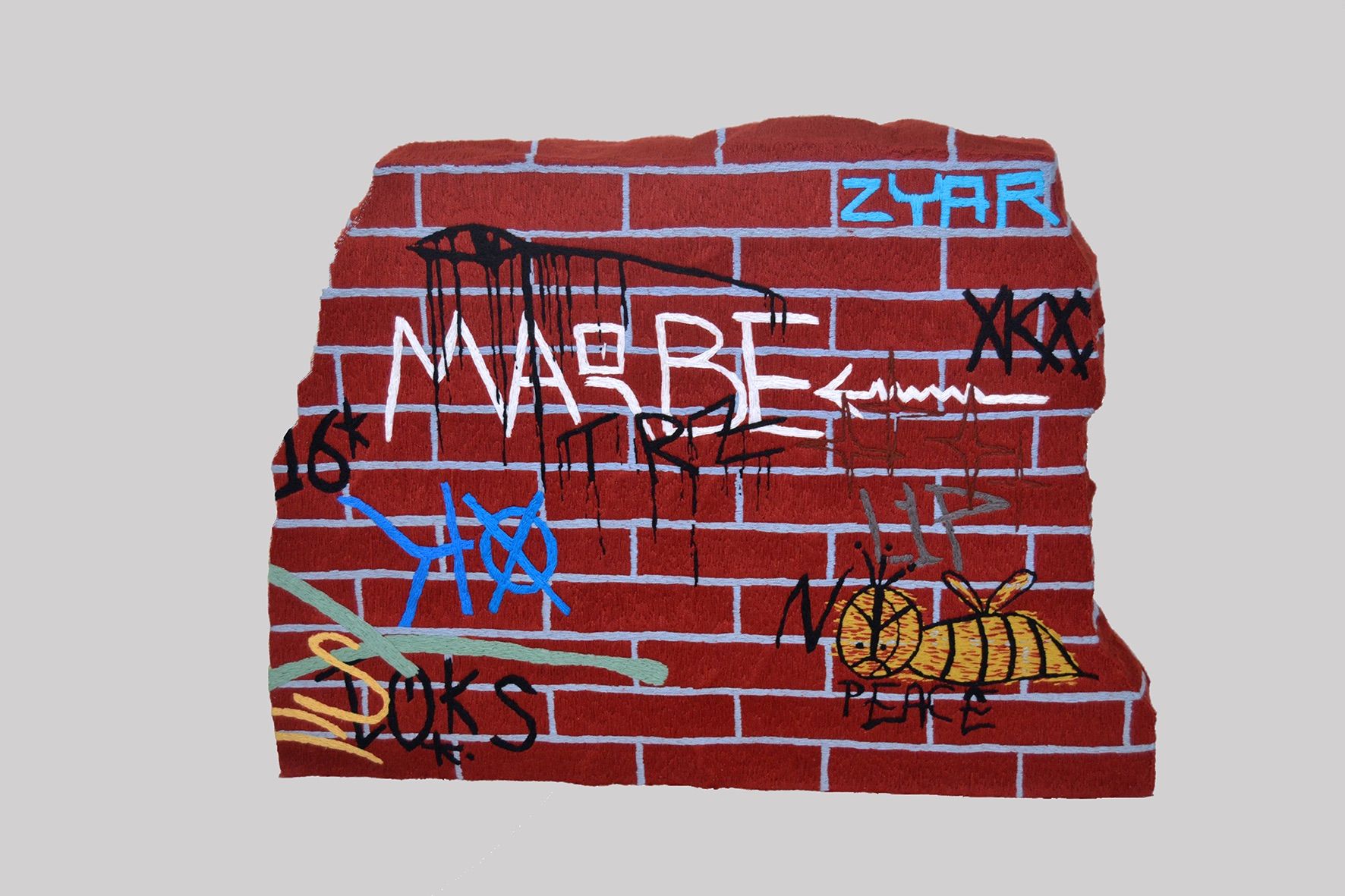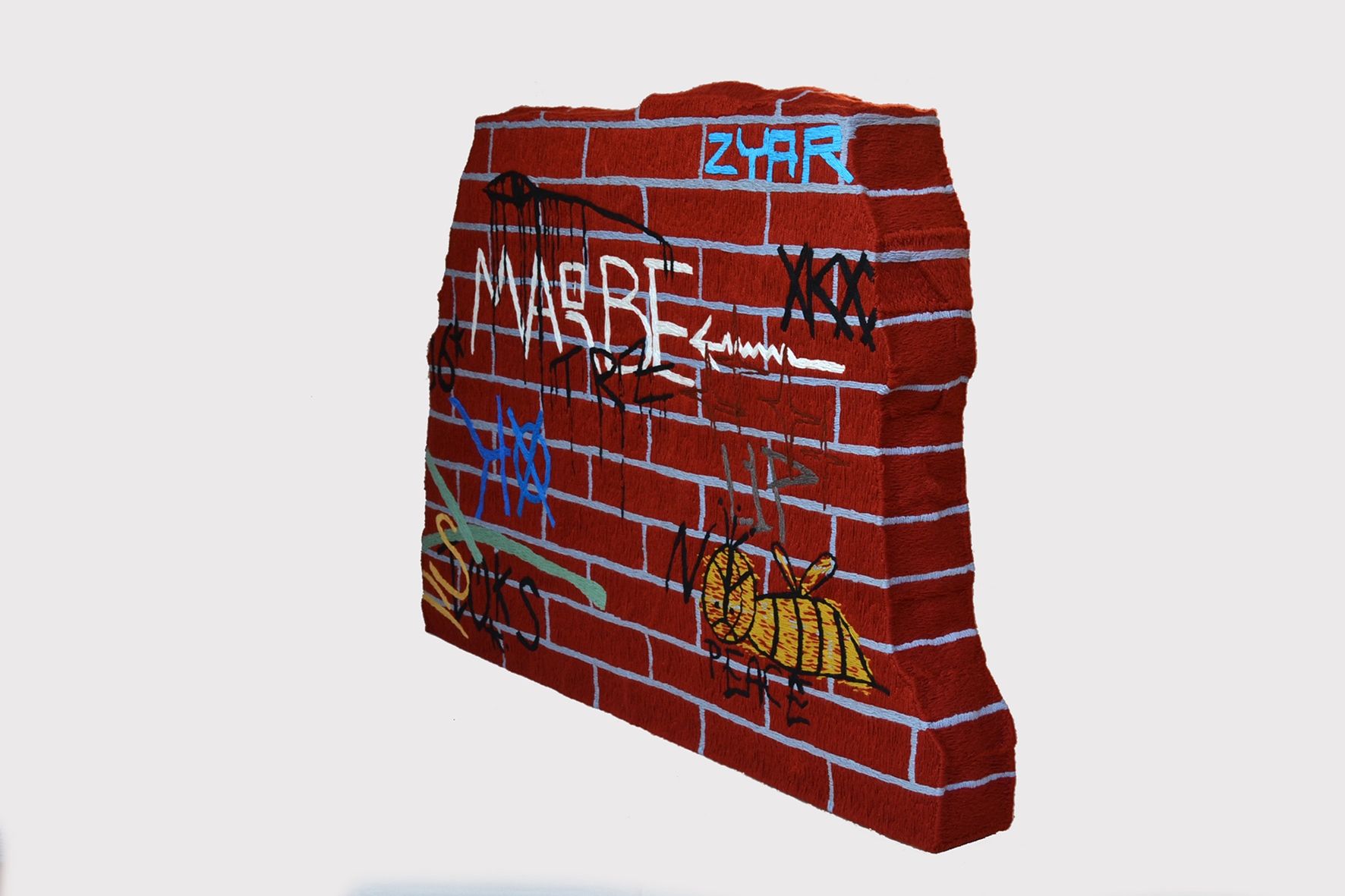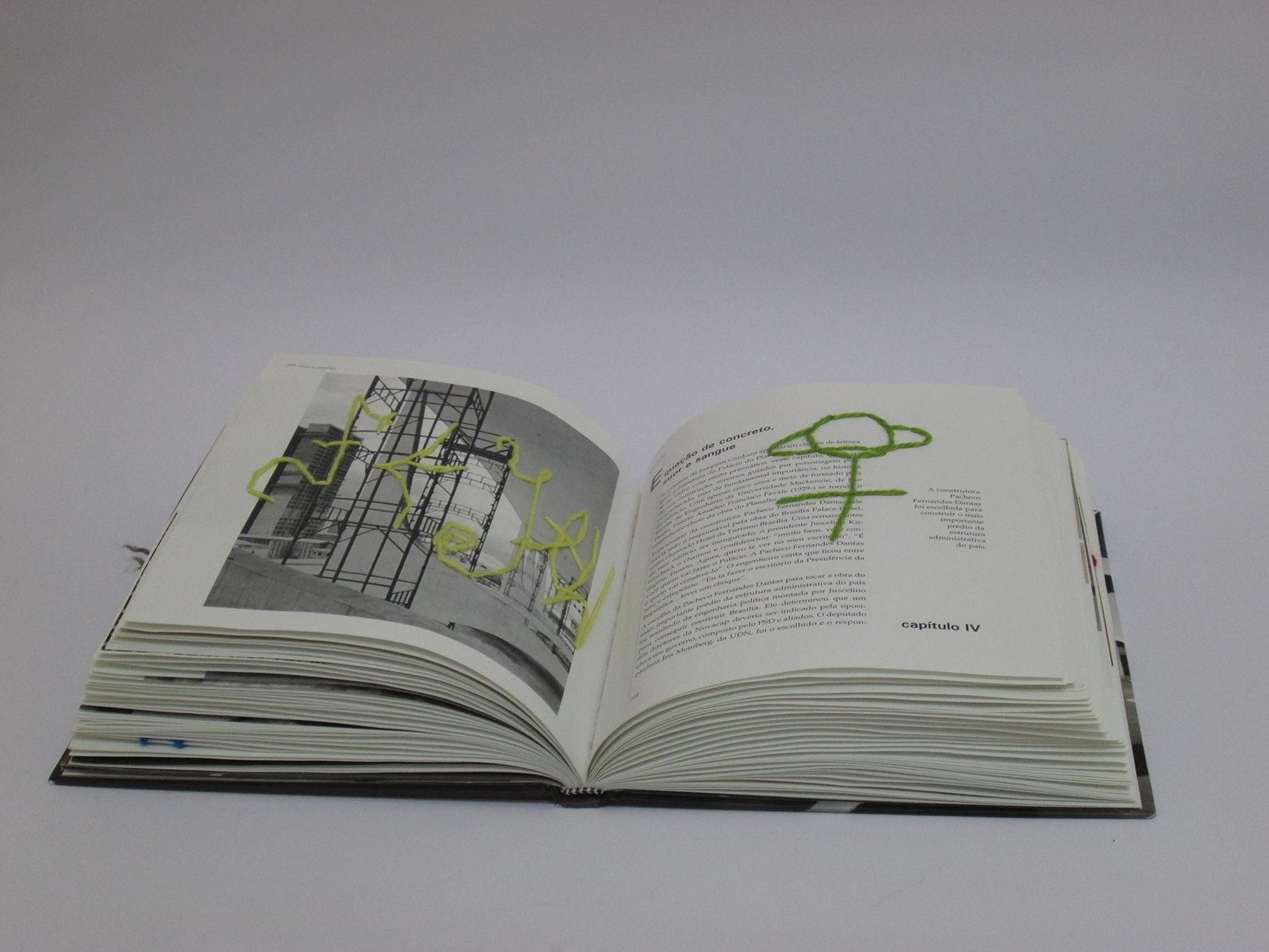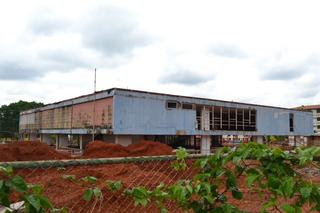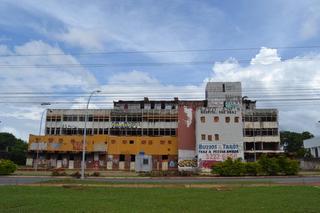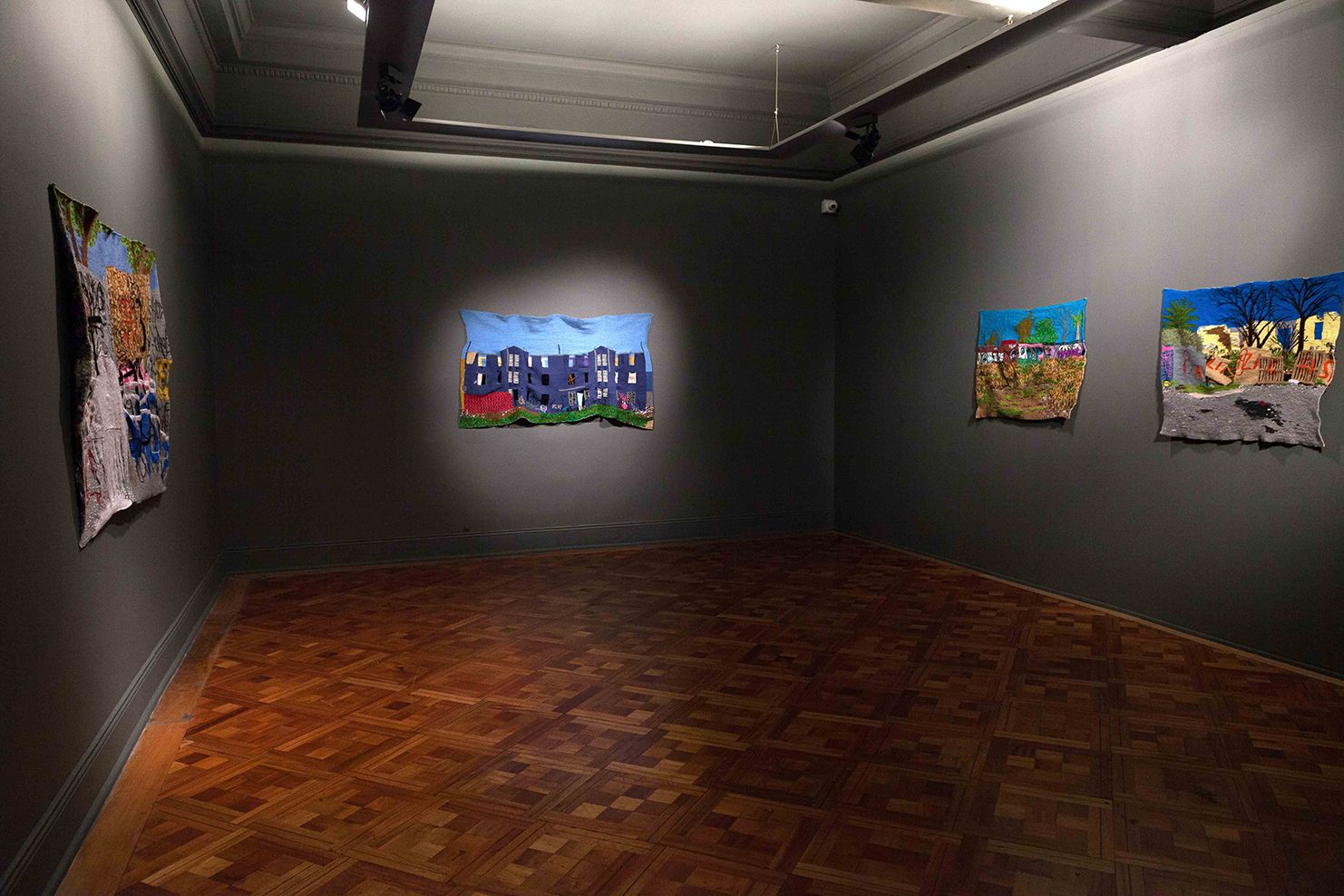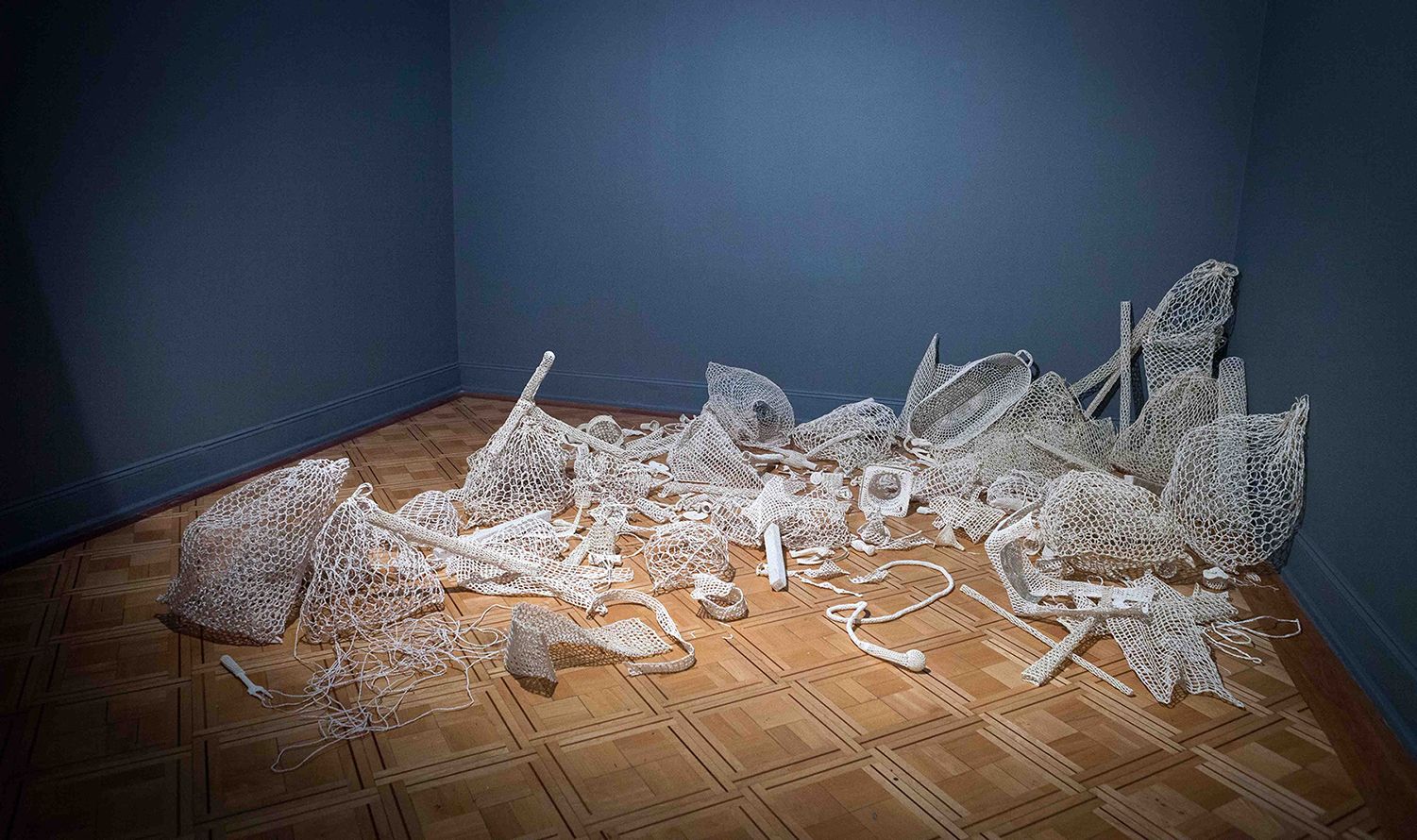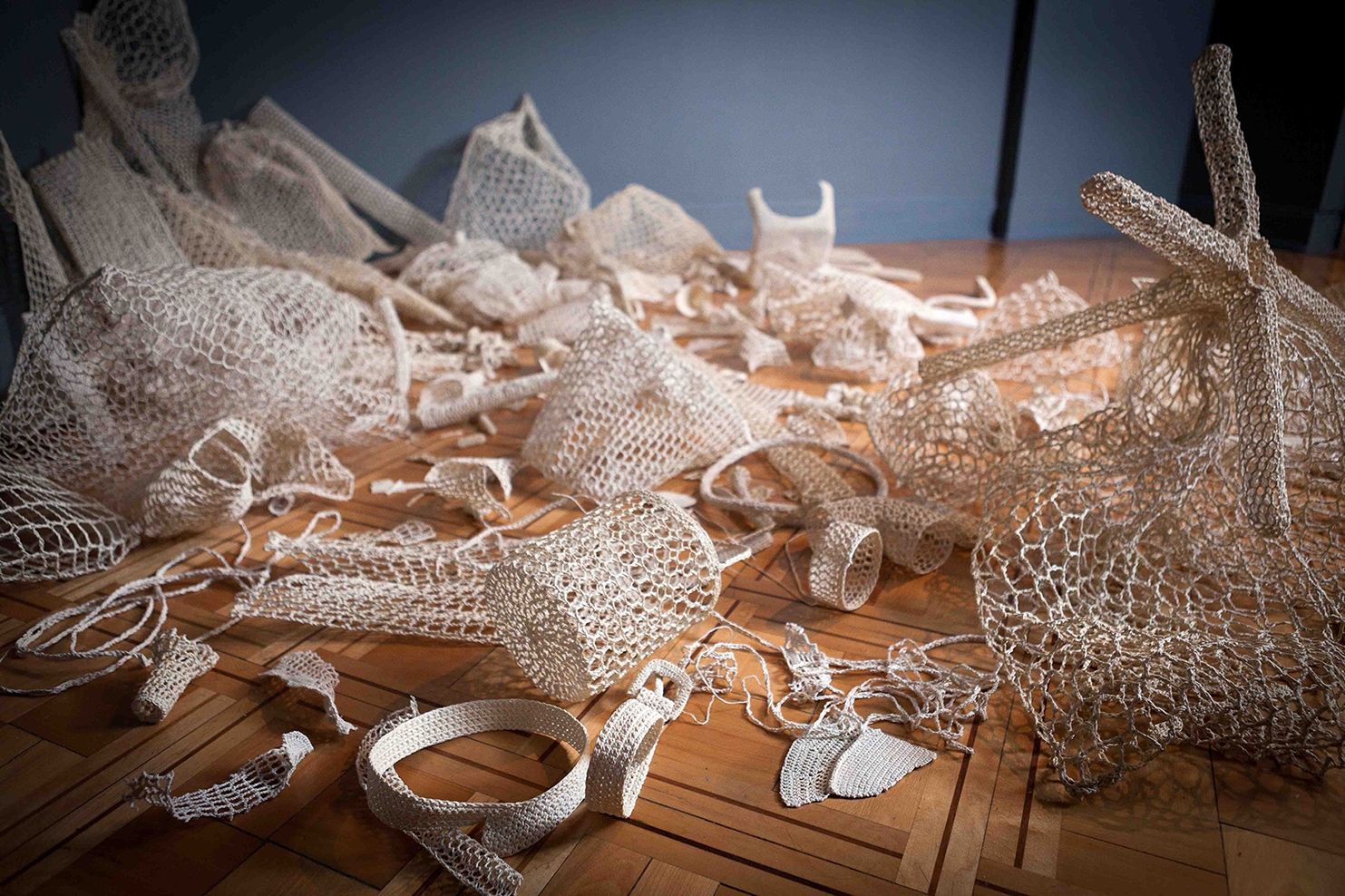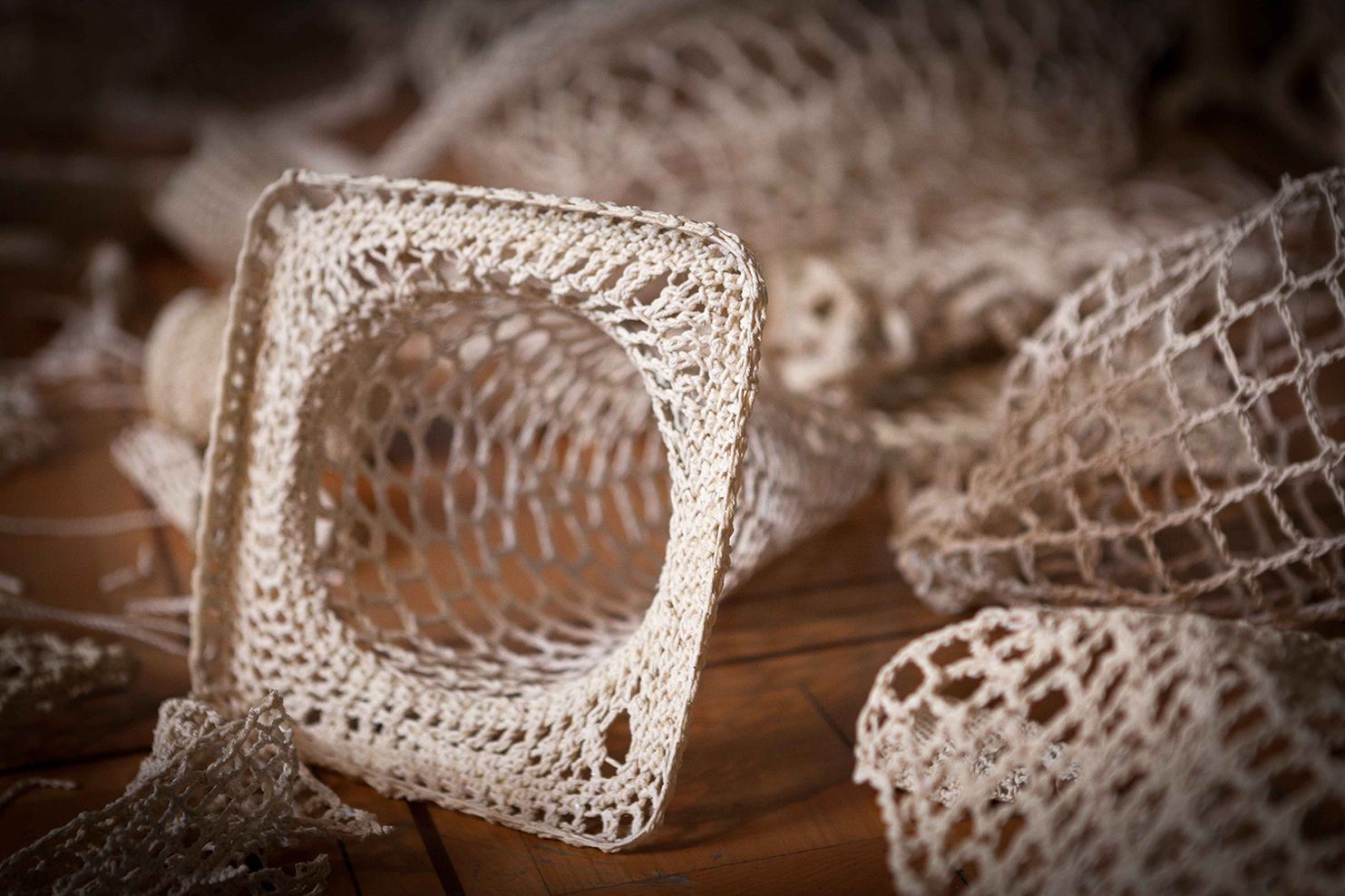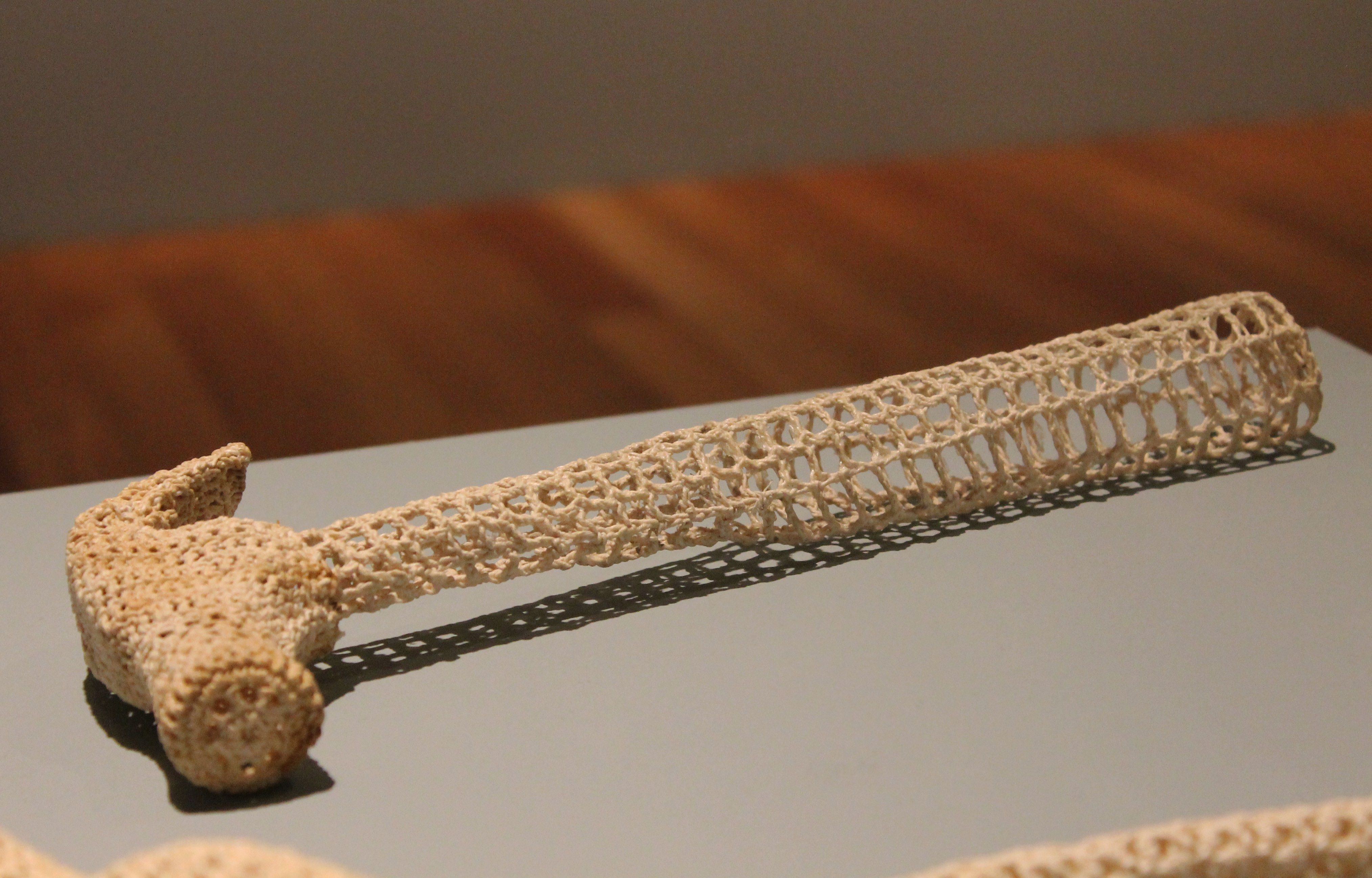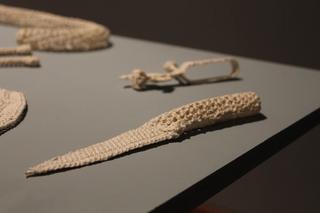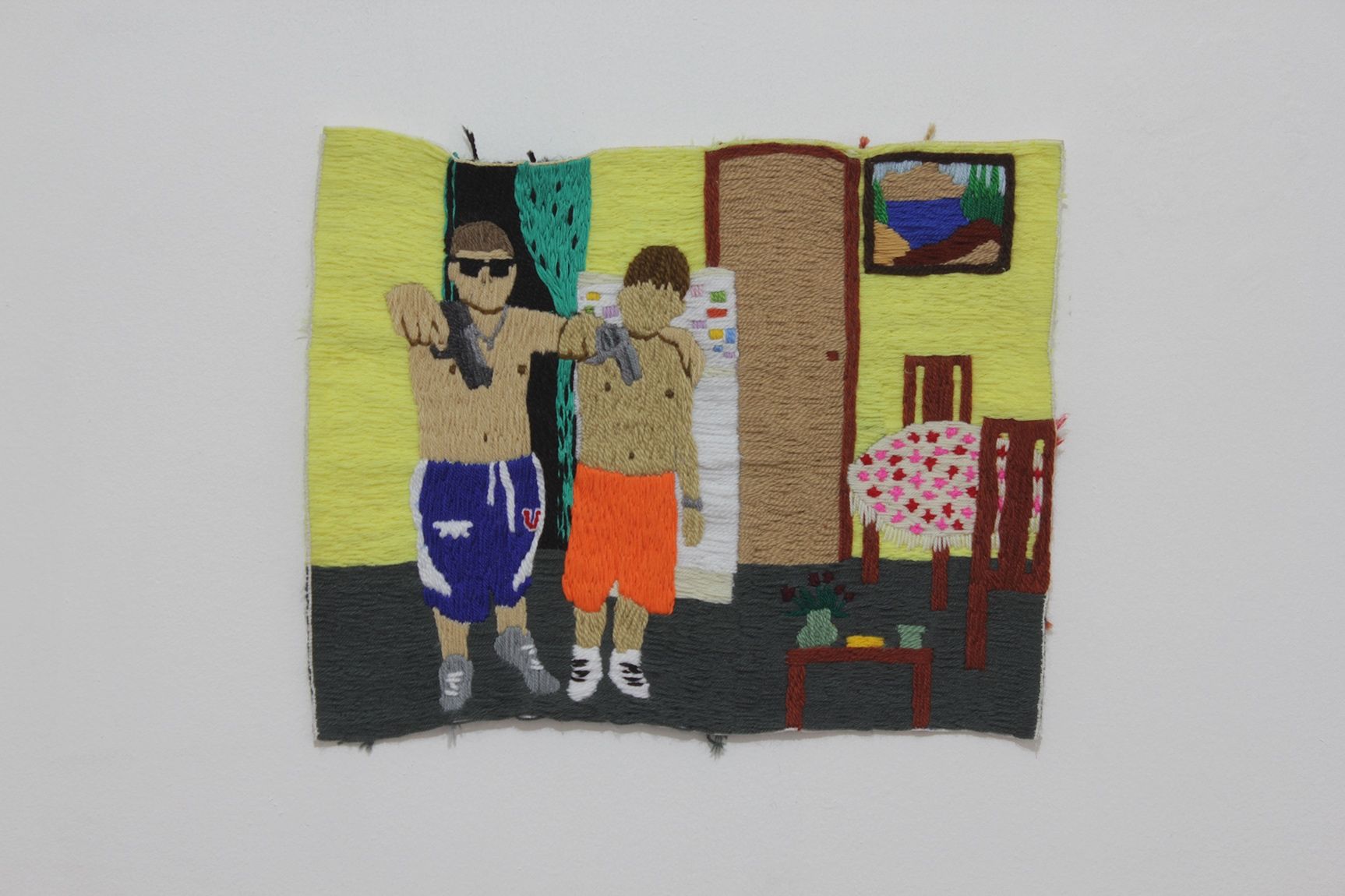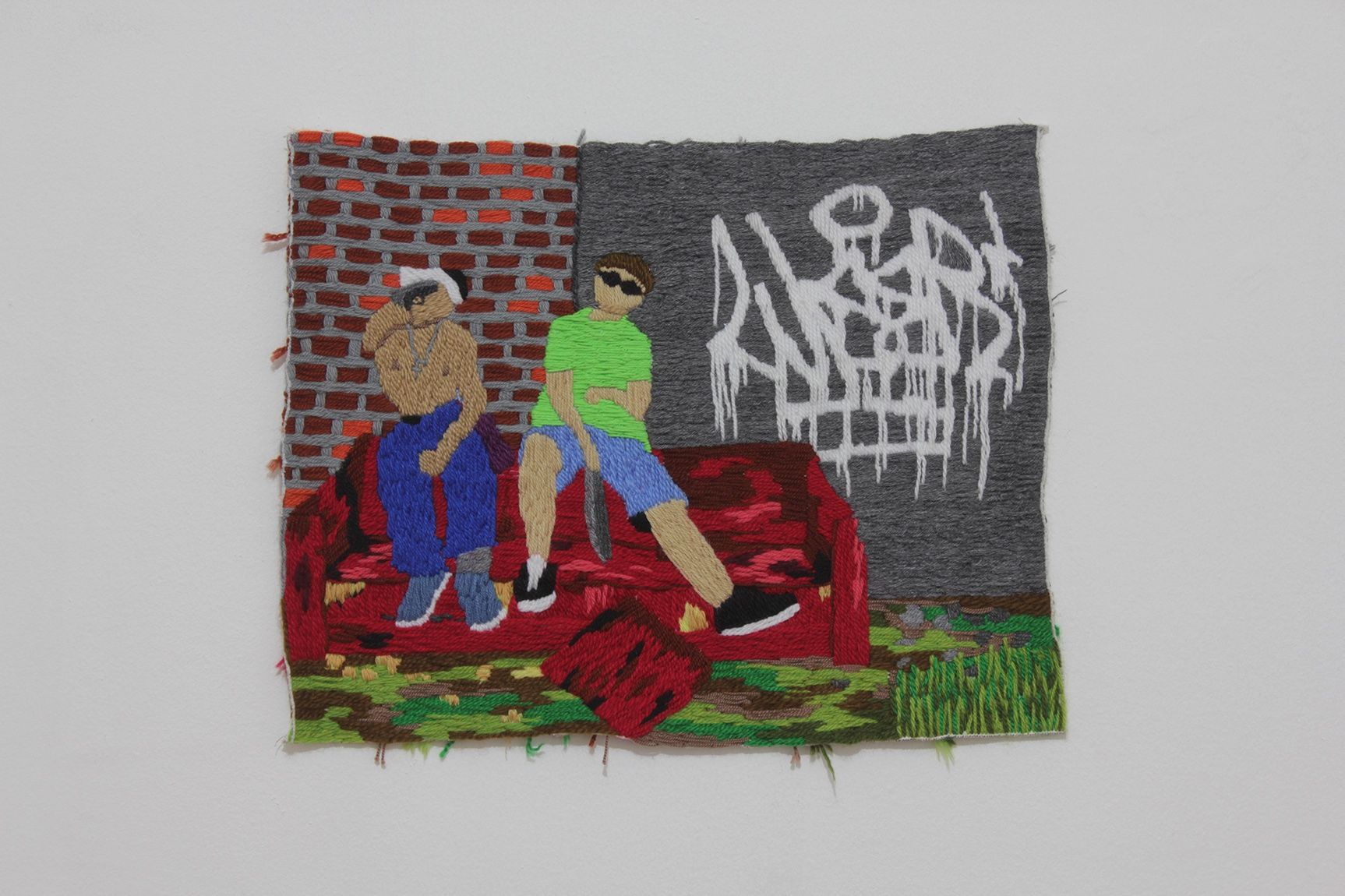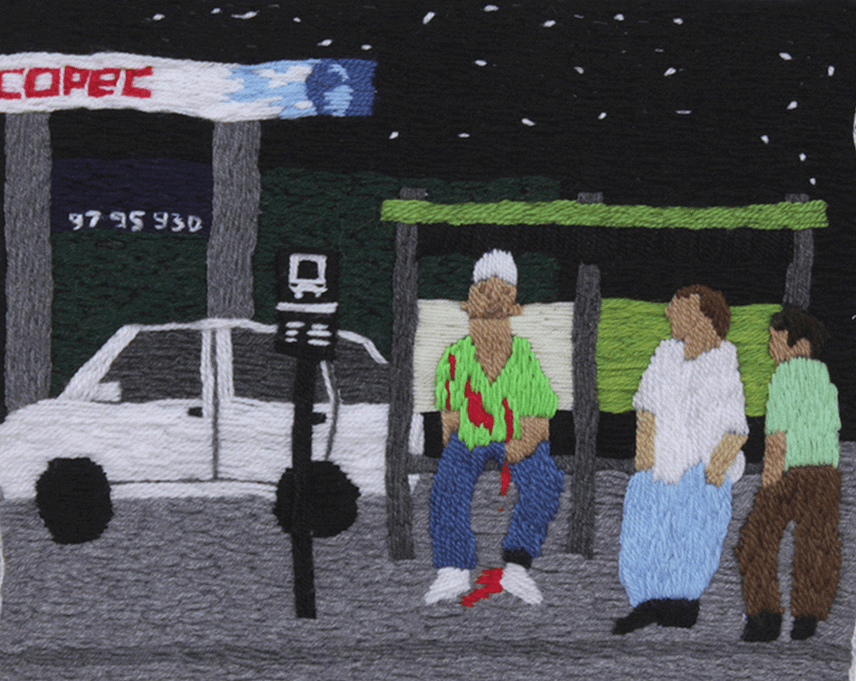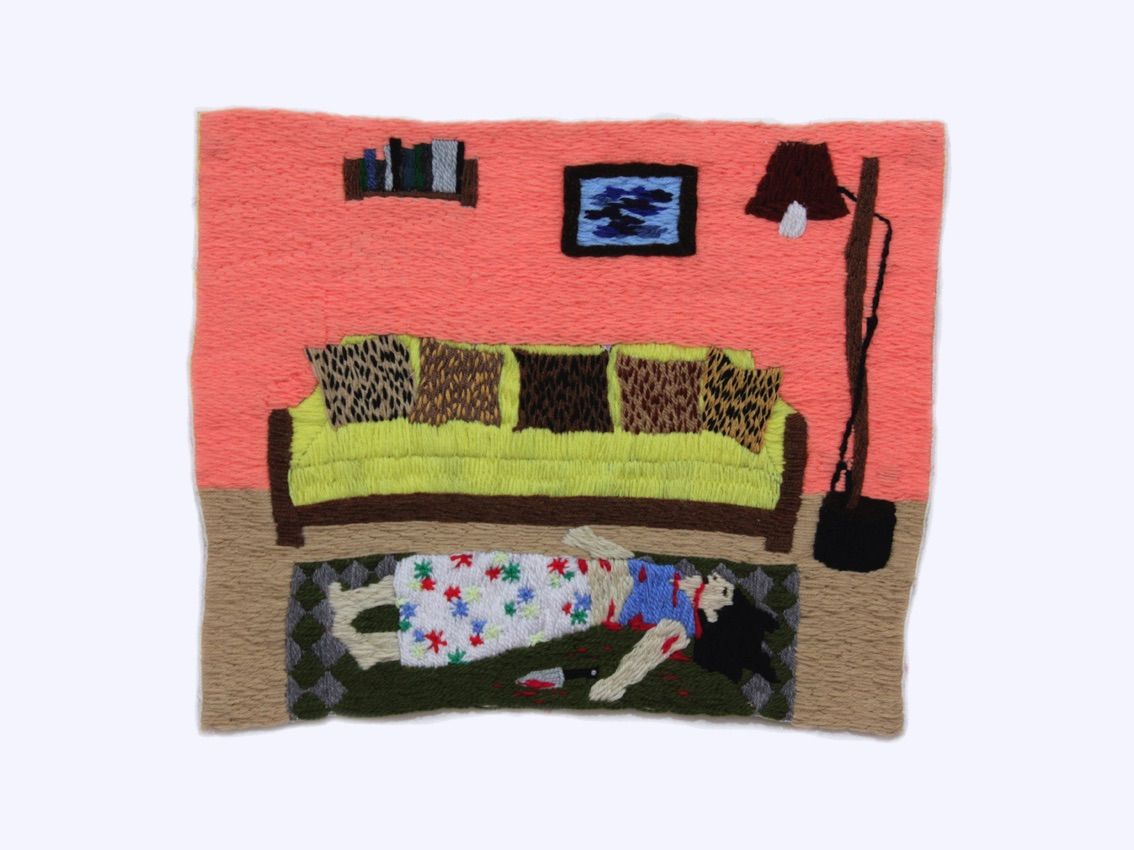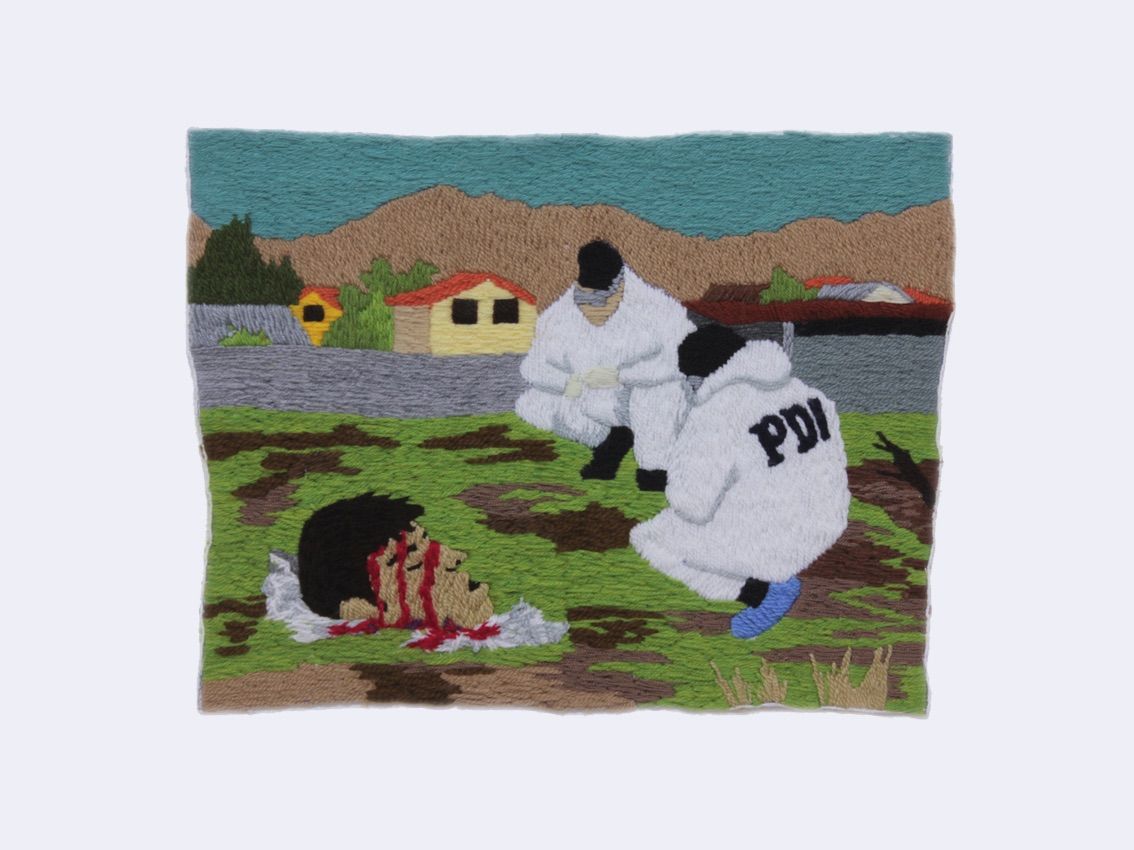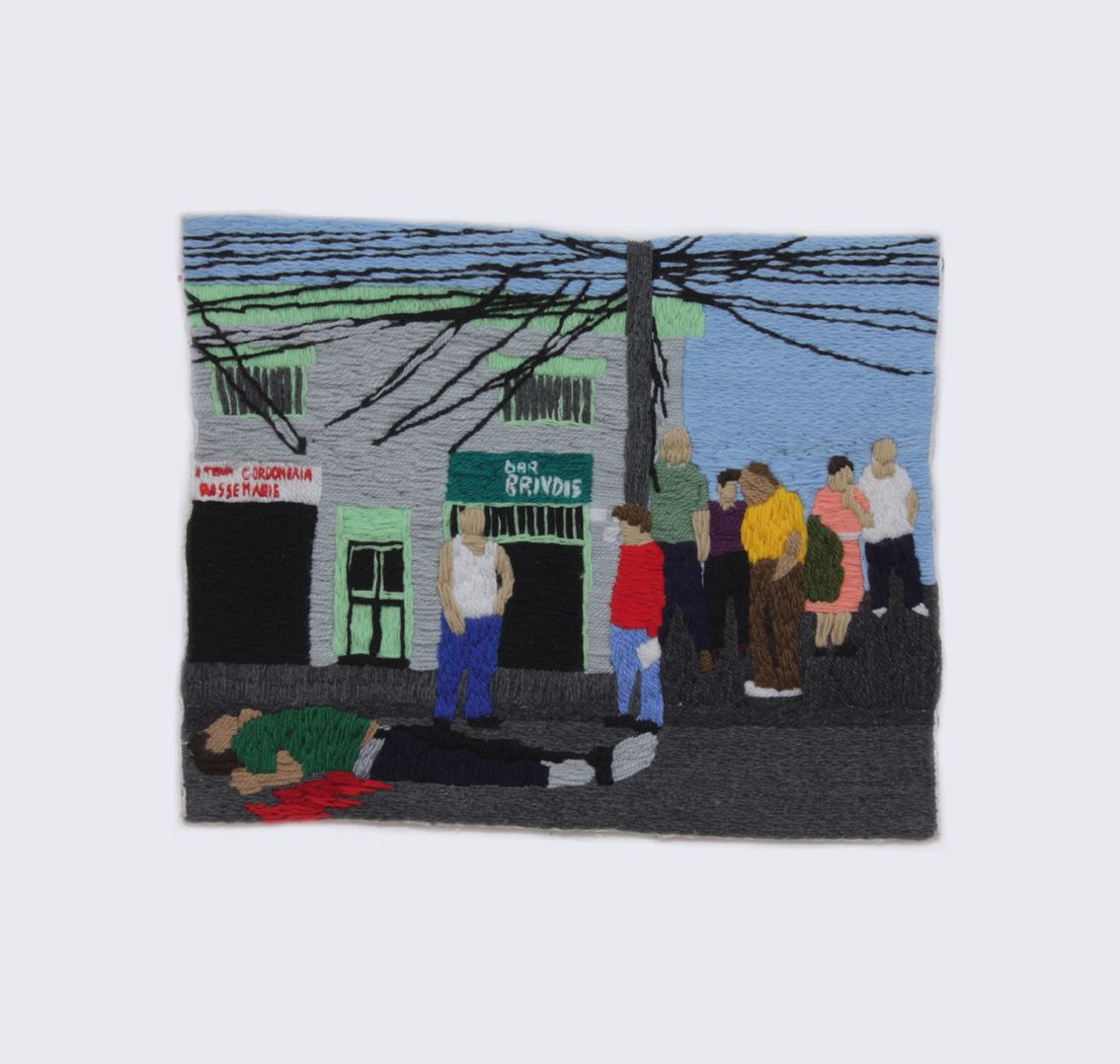"My work consists of two main components. The first is the exploration and appropriation of materials and handicrafts related to textiles, while the second relates to the representation of urban spaces that set physical or social boundaries within a city.
I started using embroidering because I was interested in how it is undervalued among the visual arts, usually linked to the feminine and to a naïve notion, but mainly because the handicraft tradition of this technique in Chile has a particular feature, which is that each craftswoman represents their place of origin, the landscape that is closest to her. From the physical geography (natural landscapes such as the Andes Mountains and the Chilean Coastal Range) to the social geography (rural and urban landscapes, customs, etc.), including the political situation at a given time (for instance, the embroideries that denounced the dictatorship of Pinochet). It was because of this expression (the tradition of political embroidering) that I grew closer to my own context: the suburban areas of the capital city of a South American country. This is the reason why my work represents, based on embroidering (using simple materials and techniques that have been overlooked), landscapes, objects and situations of the urban fringes where I live. Ultimately, it is about the “representability” of what is dispensable or of poor taste.
Lately I have been approaching the decaying landscapes of different urban areas, understanding that these ruins are the fringes or the suburbs in their own setting. These places, linked to the past but existing in the present, hold plenty of emotional baggage and significations (they are deemed dangerous places, places of free utilization, instances of history and nostalgia, etc.) and allow us to analyze the historical path of the cities and their nature. Thus, the ruins are artificial spaces, but natural to their context. They are fixed instances that, ironically, allow us to appreciate the development of the cities and at the same time, the waste of their progress." -Claudia Gutiérrez Marfull
